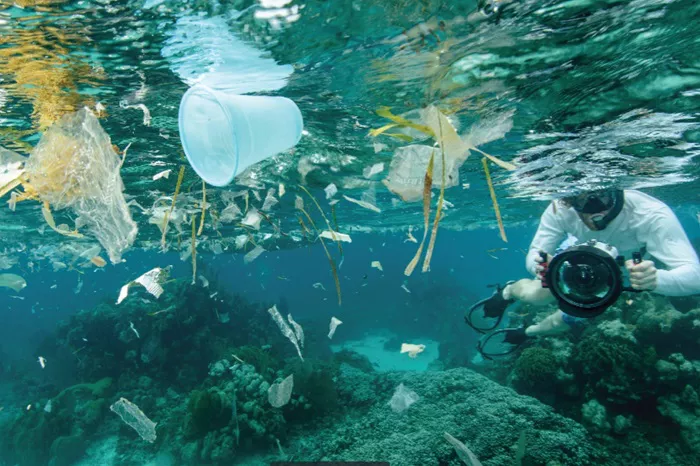Marine plastic pollution represents a significant environmental crisis, with an estimated 170 trillion plastic particles floating in the world’s oceans. This alarming statistic underscores the urgent need for effective strategies to combat this growing issue.
Recent research highlights that while some microbes have the ability to degrade certain plastics, there is no clear correlation between the levels of plastic pollution and the production of plastic-degrading enzymes by marine microorganisms. This finding suggests that the ocean microbiome has not evolved to efficiently break down the various types of plastic polluting marine environments.
Understanding Plastic Types and Their Environmental Impact
There are four main types of plastics, each with distinct properties and environmental impacts: biodegradable, bio-based, fossil-based, and non-biodegradable.
Biodegradable plastics: Made from renewable sources like corn starch or sugar cane, these plastics can naturally break down through the action of living organisms such as bacteria. Examples include polycaprolactone (PCL), polylactic acid (PLA), and polyhydroxybutyrate (PHB).
Bio-based plastics: Derived from natural materials such as plants, these include polyethylene terephthalate (PET), commonly used for clothing and food containers. While PET can be produced from renewable sources, most of its production relies on fossil fuels.
Fossil-based plastics: Made from oil and gas, these include polyethylene (PE) and polyvinyl chloride (PVC). PE is widely used for single-use packaging, and PVC for water pipes and wire insulation. These plastics are generally not biodegradable and can persist in the environment for centuries, contributing significantly to pollution and global warming.
Despite their differences, terms like “bioplastic,” “biopolymer,” “bio-based,” and “biodegradable” are often used interchangeably, leading to confusion about their environmental impacts.
Microbial Inefficiency in Plastic Degradation
Our study analyzed genetic data from marine microorganisms collected during various oceanic expeditions. This analysis provided insights into the genes marine bacteria use to produce enzymes capable of degrading plastics. The hypothesis was that higher levels of plastic pollution would correlate with increased production of these enzymes. However, the study found no clear global connection between plastic pollution levels and the presence of plastic-degrading enzymes in marine microbes.
This lack of correlation suggests that marine microorganisms have not evolved efficient mechanisms to degrade the wide variety of plastics. Several factors may contribute to this, including the diverse and complex structures of different plastics and the relatively short time and evolutionary pressure for microbes to develop specialized enzymes.
Environmental conditions, such as temperature, ocean currents, and nutrient availability, also likely influence the microbial degradation of plastics.
The Ongoing Challenge and Path Forward
The findings indicate that the global ocean microbiome has not yet adapted to effectively degrade the diverse types of plastic pollution. This highlights the persistent threat that plastic pollution poses to marine ecosystems.
Addressing this issue will require a multifaceted approach: significantly reducing new plastic waste, recovering existing ocean plastic, and transitioning to biodegradable plastics. Although the current lack of widespread microbial plastic degradation is disappointing from an environmental remediation perspective, it underscores the durability of synthetic polymers and the immense challenge of cleaning up the oceans.
Developing comprehensive solutions to marine plastic pollution is crucial to protecting marine life and preserving ocean health for future generations.
Related topics:
100% Renewable Superethanol-E85: A Promising Alternative to Fossil Fuels
Fossil Fuel Consumption Hits Record High Despite Renewable Energy Surge

